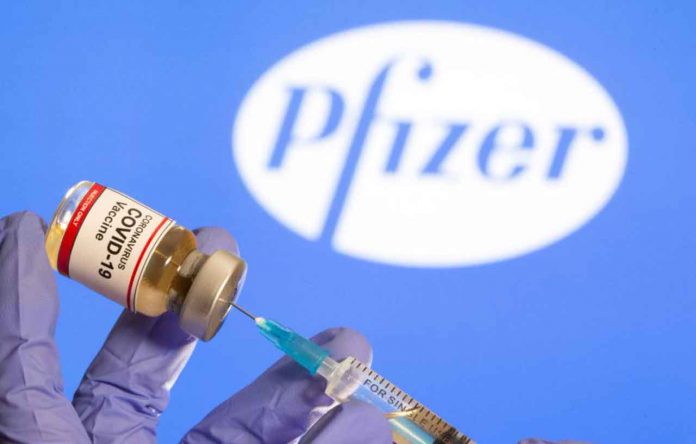
Here is what people getting the COVID-19 vaccine should expect
By Deena Beasley
(Reuters) – Britain will become the first country in the world on Tuesday to roll out the COVID-19 vaccine developed by Pfizer and BioNtech, initially making the shot available at 50 hospitals.
The country’s National Health Service will give priority to vaccinating people over the age of 80, frontline healthcare workers and nursing home staff and residents.
Here is what people getting the vaccine should expect.
WHAT HAPPENS WHEN SOMEONE GETS THE VACCINE?
The vaccine, developed with new messenger RNA technology using a manufactured fragment of the coronavirus’ genetic code, is injected into the arm. The immunization is given in two doses, three weeks apart, and has been shown in trials to protect up to 95% of recipients from contracting COVID-19.
Pfizer has said side effects in trial volunteers were mostly mild to moderate, and cleared up quickly. The most severe side effects occurred after the second dose: fatigue in 3.8% of volunteers and headache in 2%. Older adults tended to report fewer and milder adverse events.
WHAT KIND OF PROTECTION DOES IT GIVE?
The vaccine prevented COVID-19 illness seven days after the second injection – which is about a month after the first shot.
Clinical trials so far have not been designed to determine if an immunized person can still spread the coronavirus to someone else. Some vaccines, such as hepatitis A, do provide such protection – known as sterilizing immunity – but others do not. COVID-19 vaccine makers focused trials on determining whether the drug stopped people from getting ill.
It will also be several more months before it becomes clear how long the vaccination will protect someone from coronavirus infection.
“Until then, it is better to avoid the pub, and other in-person gatherings with many people,” said Dr. Anita Shet, infectious disease specialist at Johns Hopkins Bloomberg School of Public Health.
DOES THE VACCINE MEAN BACK TO NORMAL LIFE?
Since there is no evidence that the immunization prevents transmission of the virus – and no vaccine is 100% effective – scientists call for continued vigilance, including mask-wearing, hand-washing and social distancing. “As with all vaccines, it may work really great in certain patient subsets, but not as well in others … Does that mean you are free to hop on a plane or have 30 people over at your house? Probably not,” said Dr. Michelle Barron, senior medical director for infection prevention at Colorado’s UCHealth.
She said vaccination campaigns are unlikely to reach “a critical mass” until next spring or early summer.
(Reporting by Deena Beasley, Editing by Peter Henderson and Aurora Ellis)





